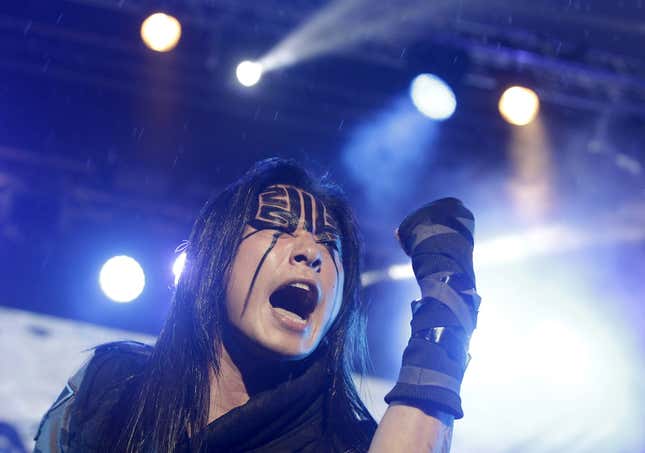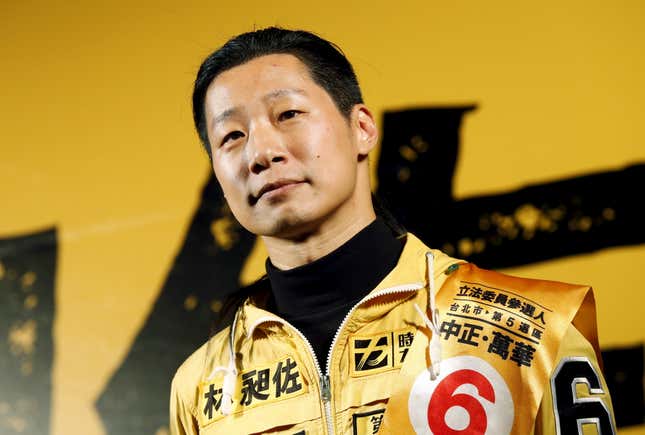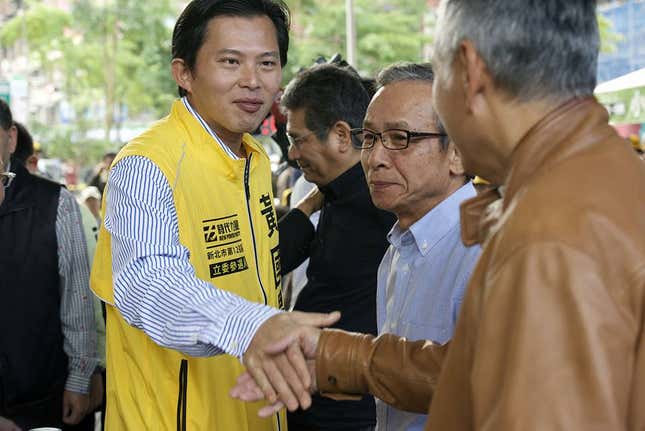Tsai Ing-wen’s victory in the 2016 Taiwan presidential elections marks a turning point in the island’s political history, as a generational shift helped mobilize support for the Democratic Progressive Party (DPP). But Tsai is far from a political outsider. She has worked in government since the ’90s, and victory comes largely out of dissatisfaction toward the ruling pro-Beijing Nationalist Kuomintang (KMT), rather than public affinity for herself or the DPP.
The real emerging stars are members of the New Power Party, which won five spots in Taiwan’s 113-seat legislature despite being less than one year old. Founded in late January 2015, the party emerged from the 2014 Sunflower Movement, an island-wide, youth-driven protest. Its leaders have earned loyalty by emphasizing the need for more transparency and oversight of the island’s bureaucracy, and also by advocating for greater social justice. Relations with China have been peripheral in its messaging, but it’s clear the party hopes to maintain the nation’s de facto independence.
The most noticeable New Power Party candidate to earn a legislative seat is 39-year-old Freddy Lim. Lim was once Taiwan’s chair of Amnesty International, and he’s currently the frontman in the heavy metal band Chthonic. His campaign drew international media attention thanks to his unusual pedigree.
In his bid for the legislature Lim defeated 64-year-old KMT incumbent Lin Yu-fang. Lin’s attempts at mocking Lim’s rock appearance only made him look out of touch with voters, and became a point of pride for Lim and his supporters. ”I’m the first rock n’ roll singer to enter national politics in Asia,” he exclaimed proudly during his victory speech (link in Chinese). “I’ve got long hair, I’ve got tattoos, and I’m about to join the legislature.”


Other incoming legislators from the New Power Party are visible figures among the island’s youth. One is Huang Kuo-chang, a 42-year-old former researcher at Taiwan’s Academia Sinica. During the Sunflower Movement, he was among the movement’s leaders who in April 2014 he met in person with prosecutors in Taipei to explain the occupation of the legislature. He also attended a representative trip to the United States on behalf of the movement. Huang defeated 67-year-old KMT incumbent Lee Ching-hua.

The youngest NPP candidate to win a legislative seat is 31-year-old Hung Tzu-yung. Formerly an administrator at a university in southern Taiwan, she is the sister of Hung Chu-chiu, whose mysterious death in a military training camp sparked a wave of protests in 2013 that preceded the next year’s Sunflower Movement.

Two other NPP candidates joined the legislature, ushered in via proportional representation—Kawlo Iyun Pacidal, a former TV anchor and aboriginal activist; and Hsu Yung-ming, a professor of political science at Soochow University in Taipei.
The New Power Party’s immediate influence on domestic politics will likely be minimal for the next few years. It has less than 5% representation in the legislature. Moreover, its victory arguably stems from the DPP’s support for it—the party nominated no candidate to compete with Lim and a few other NPP candidates.
This election proved the New Power Party could become an enduring fringe party. But it has yet to enter the mainstream.
